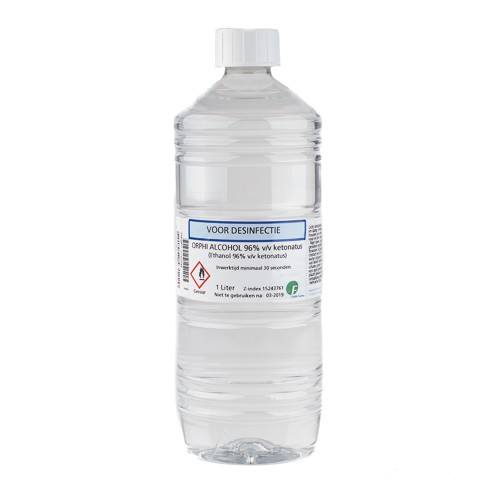Wat is alcohol ketonatus? (What is alcohol ketonatus?)
In het Nederlands: een simpel en een-zin antwoord is alcohol ketonatus is alcohol die door gebruik van een ketone (meestal is butanon in Nederland gebruikt) zijn geur veranderd is om het ondrinkbaar te maken. Het zou dus niet gebruikt zijn om te drinken (waarom willen mensen 96% alcohol drinken is wel buiten mijn verstanding maar ja…).
In English: A simple and one-sentence answer is alcohol ketonatus is the Dutch nomenclature for alcohol that’s been “denaturated”. Essentially, alcohol that through the usage of a ketone (in the Netherlands it’s usually butanone) is made undrinkable and should not be used for human consumption.
—
Some background… whilst living in the Netherlands, I often wondered why was “pure alcohol” nowhere to be found. There’s the alcohol shops, and the supermarkets, and they all sell wines and all kinds of distilled drinks but I could never find the pure ethanol which we in Portugal use to cook chouriça laid on an assador de barro.
[Continue Reading]
It turns out such ethanol does exist and I found it on DIO (even though I later realized both etos and Kruidvat also sell them). Upon browsing through their online shop, I found a so-called “alcohol ketonatus” which left me wondering what was this “ketonatus” all about. Was this what I was looking for? Or was this some weird concoction and not suitable for what I needed?
After looking around I couldn’t find a conclusive answer (even on Dutch websites) on what this “alcohol ketonatus” was… and that’s when I decided to figure out what exactly was this “ketonation” process. Lo-and-behold, “ketonation” is basically what reads in the Portuguese alcohol bottles as “desnaturado“, that is, made improper for human consumption.
And now you know. If you’re Portuguese and you’re in the market for álcool etílico desnaturado, just buy “alcohol ketonatus” from your local DIO/Kruidvat/etos 😉
Pro tip: If you’re Portuguese, get yourself a hold of someone in Portugal who makes his/her own bagaço/aguardente and use that instead. You’ll get a better aftertaste and hey, that one can actually be drank!
Pro tip 2: If you really don’t know anyone who can get you a supply of aguardente, or if you don’t travel back to Portugal often enough, then make friends with a Chinese! Odds are they can get you some 白酒 (pronounced bái jiǔ or bai2jiu3 or just show them the Chinese characters…) which is just as good or even better!


Comments